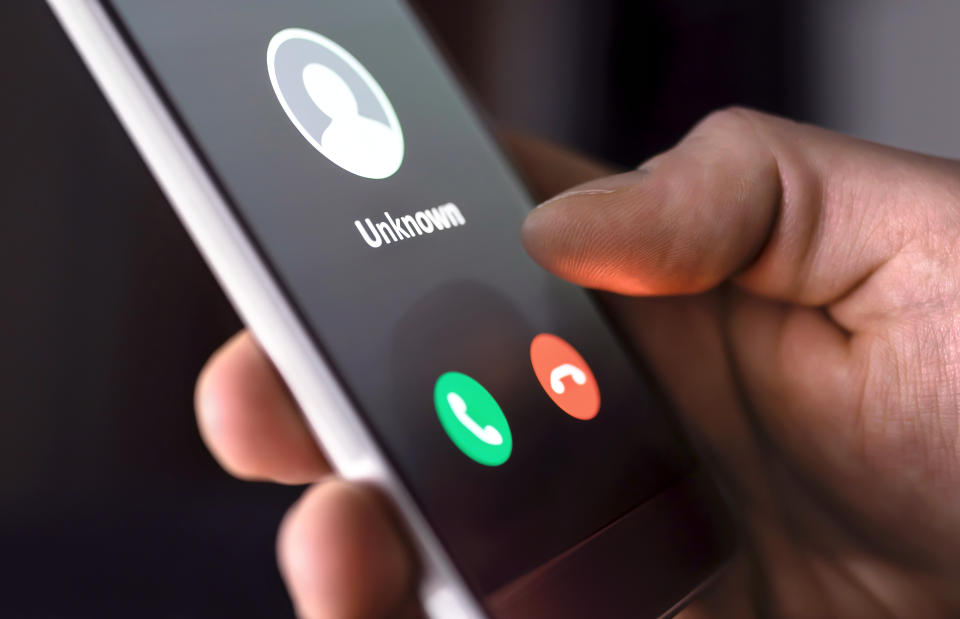The coronavirus robocall scams are emerging
Robocallers have added an insidious twist to what is already a huge daily annoyance to many consumers.
Transaction Network Services, which provides robocall detection services to major phone networks, told Yahoo Finance that it has begun to see reports of robocalls using coronavirus as its targeting method.
In the past, scam calls have used fears about the IRS and Social Security benefits to take advantage of people, often pretending to be representatives from those government agencies. Recently, scammers have been employing a FedEx scam. But true to form, scammers once again adapt to leverage the news to their benefit — employing coronavirus concerns.

“Obviously, healthcare has always been one of the top scams, but if the bad actors can twist the scam and modify it a little, we’ll see them use that,” said Jim Tyrrell, Transaction Network Services’ Senior Director of Product Marketing.
Transaction Network Services, which powers call analytics and call filtering for Yahoo Finance parent company Verizon (VZ), Sprint (S), and US Cellular (USM), uses “honeypot” numbers — essentially fake numbers that answer if a robocall dials in — to figure out trends involving scams and a crowdsource feedback tool that works with its robocall apps.
“We’ve seen feedback around ‘free cruises,’ because they’ve taken a hit [from the coronavirus],” Tyrell said. “A lot of calls seem to be more on the west coast in the California region.”
Transaction Network Services also said that scammers have also been trying to put malware on devices through the text messages, using coronavirus messaging as bait.
Not everyone has these reporting apps — and even fewer report things like this using the feedback tools. Only about 1 in 2,000 people who get a robocall bother to fill out the feedback form on these apps, so Transaction Network Services says even just a few instances of this coronavirus robocall are indicative of meaningful scammer activity beginning.
In January, Transaction Network Services received only a handful of reports of coronavirus scam calls, but the amount of complaints has grown to around a dozen into March. While it’s probably not yet widespread, Transaction Network Services’s Tyrell sees this as a fresh threat to consumers as bad actors adjust their tactics continuously.
Coronavirus scams are likely to persist for a while — and not just with robocalls. Already, Amazon has been dealing with coronavirus scams, removing over a million product listings from third-party sellers trying to take advantage of the public’s worry to turn a quick profit, and it appears that the public will be dealing with its own coronavirus scam issues.
On the other hand, not all coronavirus robocalls are scam calls. Many towns — and even a priest in Wisconsin — have employed robocalls for legitimate alerts regarding the virus, such as school closings.
-
Ethan Wolff-Mann is a writer at Yahoo Finance focusing on consumer issues, personal finance, retail, airlines, and more. Follow him on Twitter @ewolffmann.
9 key dates when we’ll know more about how how coronavirus is effecting the economy
Coronavirus price gouging: 3 charts show Amazon's wild spikes
The 'best-case' coronavirus scenario: people don't all get sick at once
The government is finally cracking down on companies that enable robocalls
Read the latest financial and business news from Yahoo Finance
Follow Yahoo Finance on Twitter, Facebook, Instagram, Flipboard, LinkedIn, YouTube, and reddit.